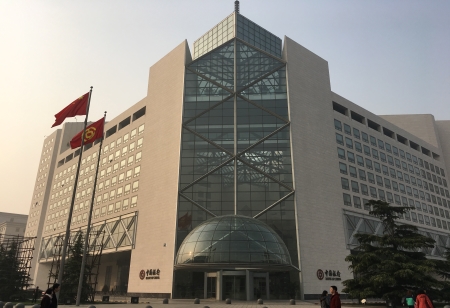
Based on sources, two Chinese polyester fibre manufacturers are seeking Beijing's approval to build a $10 billion refinery and petrochemical complex in Indonesia.
The move comes as China intensifies talks on mega-investments in Southeast Asia as part of President Xi Jinping's Belt and Road Initiative, and as Beijing limits approvals for new domestic refineries in order to reduce carbon emissions and a fuel supply overhang.
According to three sources, the East China-based Tongkun Group and Xinfengming Group are planning a refinery-petrochemical complex in North Kalimantan province on Borneo Island to produce feedstocks for chemical fibre.
According to two sources, the proposed petrochemical complex, led by Tongkun, would include a 200,000 barrel-per-day refinery and an 800,000 tonne-per-year ethylene unit that could be expanded in the future.
The project would be part of a planned industrial park in North Kalimantan, where companies broke ground last month on a $2.6 billion hydropower project to attract manufacturers of aluminum, batteries, and electric vehicles.
According to two sources, Tongkun has begun feasibility studies for the project, which would partially produce paraxylene for its growing production of purified terephthalic acid (PTA) in China, a feedstock for polyester fibre.
According to them, it is also seeking approval from China's state planner, the National Development and Reform Commission (NDRC).
A Tongkun investor relations official stated that the Indonesia refinery project is still in the planning stages, but declined to comment further. An official from Xinfengming's investor relations department declined to comment.
The NDRC did not respond to a comment request.
According to a post dated Nov. 18 on Tongkun's official WeChat account, top executives from the two Chinese companies briefed Indonesian President Joko Widodo on their investment plans in North Kalimantan on the sidelines of the G20 summit in Bali.
Indonesia's minister of maritime and investment affairs, Luhut Pandjaitan, met last week in Beijing with NDRC chairman Zheng Shanjie and Chinese Foreign Minister Qin Gang, both of whom were appointed in March, to discuss Chinese investment in Indonesia.
Without naming specific projects, Luhut stated that Jakarta hoped for more Chinese participation in the construction of the country's new capital and the North Kalimantan industrial park, as well as investments in renewables and new energy vehicles, according to Chinese state media.

